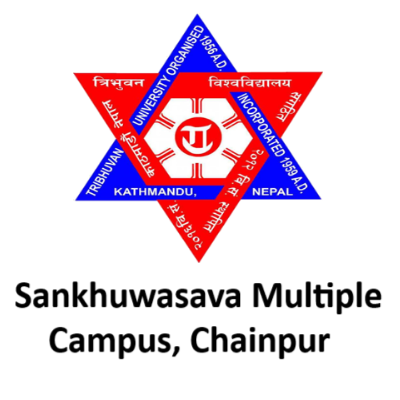Overview
Bachelor of Arts (BA) at Barun Multiple Campus, Khandbari
If you’re a Humanities or Social Sciences student seeking a grounded BA in eastern Nepal, the TU‐affiliated Bachelor of Arts (BA) at Barun Multiple Campus (BMC), Khandbari offers a clear path. The program follows Tribhuvan University’s four-year structure and serves Nepali students aiming for careers in teaching, civil service, development work, media, research, and community leadership. Early questions often sound like: Which majors are available? What is the exam pattern? How do internal marks work? This page answers those with verified details.
Highlights
-
Affiliation: Tribhuvan University (TU)
-
Duration & System: Four years; annual evaluation with internal assessment
-
Campus Majors: Nepali, English, Mathematics, History, Political Science, Sociology, Economics
-
Setting: Community campus in Khandbari, Sankhuwasabha (non-profit, inclusive access)
-
Attendance Rule: Minimum 80% class attendance for final exam eligibility (institutional rule)
Curriculum Details
Here’s what you’ll study over four years. TU prescribes three compulsory subjects across the program—English (200 marks), Nepali (100), Nepal Studies (100)—plus two majors (700 marks each) and two electives (100 marks each). Written exams carry 70 marks, and 30 marks come from internal work such as presentations, mini-projects, and teamwork. BMC delivers majors that match local demand and faculty expertise listed above.
Objectives
Students learn to read critically, write clearly, analyze society using evidence, and connect theory with field reality in Sankhuwasabha and similar contexts. Personal growth matters here; many students balance study with family or work responsibilities, so planning and steady practice sit at the core.
Scope
Not sure where this degree can lead you? Graduates move into education, social work, local government, NGOs, media, banking support roles, and community development. The BA also builds a base for MA in English, Nepali, Sociology, Political Science, Rural Development, and related fields at TU campuses.
Learning Outcomes
-
Clear academic writing and Nepali/English language control
-
Quantitative and qualitative reasoning (as majors require)
-
Historical and political awareness for Nepali public life
-
Ethical research habits and citation basics
-
Teamwork, presentation, and community engagement skills
Skill Development Modules
-
Academic Writing & Presentation: seminar papers, poster talks
-
Field Inquiry: short surveys, local case studies, interviews
-
Data Sense: tables, basic statistics for social topics (where relevant)
-
Media & Information Use: library/e-resources, source evaluation
-
Civic & Community Tasks: service learning tied to local needs
Teaching Methodology
Classes mix lectures, guided reading, group work, and small projects. Faculty use local cases—Arun Valley livelihoods, district governance, and heritage studies—so theory meets place. Internal assessment supports steady learning rather than last-minute cramming.
Admission Requirements
-
Eligibility (TU rule): Grade 11–12 with D+ in all subjects or PCL/Intermediate recognized by TU. Students seeking Major English/Economics should have cleared the respective subjects at +2/PCL within three years if not already done. Journalism majors at TU require prior +2/PCL Journalism.
-
Campus Process: Form submission with photographs, academic transcripts, migration (as needed), and prescribed fees.
-
Attendance: 80% minimum to sit finals.
Career Opportunities
-
Education: teacher (after B.Ed./license), academic support roles
-
Civil Service & Local Bodies: administrative and social sectors
-
NGOs/CSOs: program assistant, field coordinator, documentation
-
Media & Communication: reporting, editing support, content roles
-
Further Study: MA pathways that strengthen teaching, research, or policy work
Scholarships and Financial Aid
BMC offers need- and merit-based support, including tuition waivers for high achievers and concessions for disadvantaged groups and siblings. Students from remote areas and first-generation learners often benefit; documentation and timely application help.
Why Choose This Course?
Students who prefer a grounded BA anchored in community realities find a good fit at BMC. Majors reflect faculty strength and regional needs, internal assessment builds confidence, and the setting encourages focused study away from noise.
Conclusion
BMC’s TU BA balances academic depth, local relevance, and steady guidance. Students who plan their time, attend classes, and use library and internal tasks well finish with strong writing, analytical habits, and a platform for work or postgraduate study.
FAQ
Q1. Is BA at BMC a four-year program?
Yes. TU prescribes the four-year structure with compulsory subjects, majors, electives, and internal assessment.
Q2. Which majors are taught at BMC?
Nepali, English, Mathematics, History, Political Science, Sociology, Economics.
Q3. How are students evaluated?
Written exams for 70 marks and internal work for 30 marks per subject under TU rules.
Q4. What attendance is required?
At least 80% class attendance for exam eligibility (institutional rule).
Q5. Can I pursue MA after BA?
Yes. Graduates commonly pursue MA in related fields at TU or other recognized universities; subject-wise prerequisites apply as per TU entry norms.


















